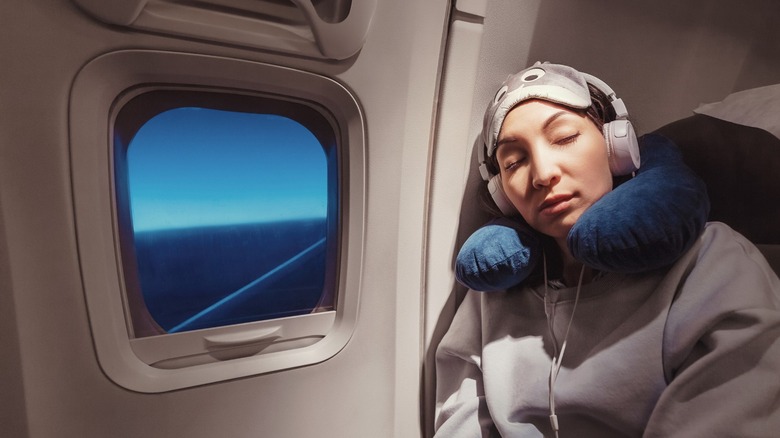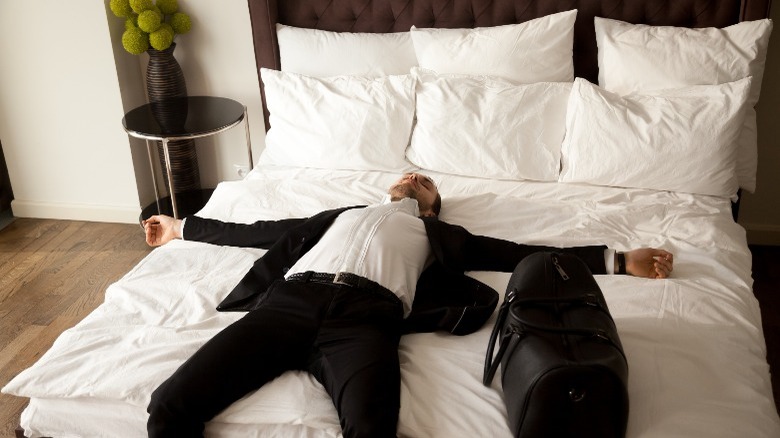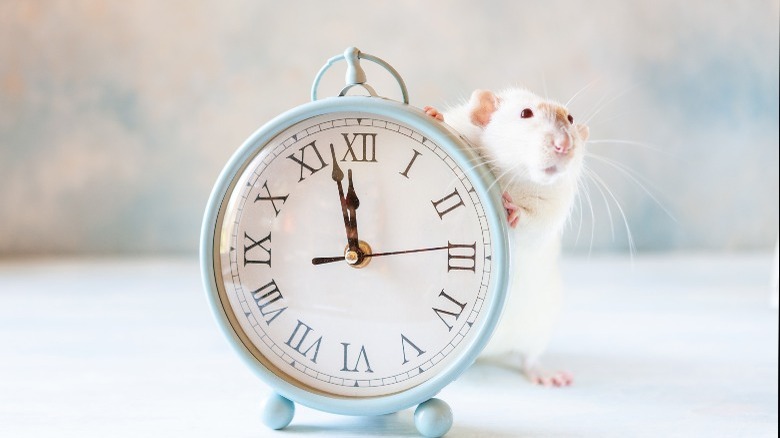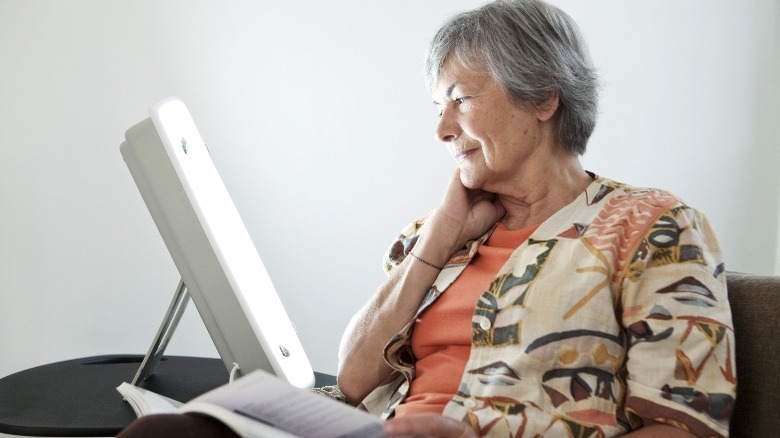Science Explains What Really Happens When You Get Jet Lag
If you're a veteran traveler, chances are you're familiar with jet lag, the feeling of disorientation that comes with changing time zones quickly. What actually happens to our bodies when we experience jet lag?
In short, our circadian rhythms are being disrupted. According to the Cleveland Clinic, circadian rhythms function like an internal clock, telling us when to be sleepy and when to wake up, and controlling things like hormone production and body temperature. Our internal clocks work on a roughly 24-hour system, influenced by exposure to light. Based on that exposure, our bodies produce more or less melatonin, the hormone that makes you sleepy. Production of melatonin usually happens when it's dark outside (via the BBC).
Functionally, different parts of the body have different internal clocks. Normally these are synchronized with each other, but they can adjust to time changes at different rates, making it even more difficult to deal with jet lag.
Symptoms of jet lag
The most common symptoms of jet lag are increased fatigue, drowsiness during the day, insomnia, or trouble falling asleep at night. This tiredness can lead to a lack of focus or concentration, according to the Cleveland Clinic. Whether you have more trouble falling asleep or staying awake depends on what direction you've traveled. The Cleveland Clinic says flying east is more difficult than flying west, because you gain time when flying west rather than losing it, and your body can adjust faster to staying up late than going to sleep early.
Other symptoms of jet lag include headaches and mood changes, like irritability. The BBC notes that circadian rhythms also affect blood pressure and hunger, meaning these things can be affected by jet lag, too. The Cleveland Clinic notes that an upset stomach can be a symptom, which could be influenced by changes in appetite or meal times.
According to David Neubauer, who studies sleep disorders at Johns Hopkins, sleep deprivation before traveling can worsen the effects of jet lag, so it's important to try to rest before your flight (via The Washington Post).
Experiments related to jet lag
Our bodies' mental "clock" is located in the hypothalamus, the same part of the brain that controls hunger, thirst, and some emotional activity. Manipulating the "clock genes" found in this part of the brain can shift our 24-hour cycles. The same is true in other organisms. A team at Oxford University has been testing this principle in mice. Normally, clock genes can't be changed quickly because of a protein called SIK1, but when this protein is blocked, more change is possible. Researchers were able to shift the mice's internal clocks by six hours in only two or three days. This may have implications for humans dealing with jet lag (via the BBC).
A team in Japan found that the hormone arginine vasopressin also plays a role in our internal clock's settings. Mice without receptors for this hormone were much less affected by jet lag, but how that finding could be applied to humans remains to be seen (via the BBC).
How to deal with jet lag
Jet lag can be made worse by conditions on the plane, such as sitting for a long time, not getting enough oxygen in flight, and getting dehydrated because of warm cabin temperatures and low humidity. Therefore, drinking lots of water is important, as is moving around on the plane when possible. Even if you're stuck in your seat, the Cleveland Clinic recommends stretching in place by raising your knees, swinging your arms up, and turning your head, among other things.
Trying to adjust your circadian rhythms before you travel can also help. Researchers suggest using light exposure and small doses of melatonin to do this. When flying east, they recommend taking melatonin in the afternoon and using a light box or something else to simulate sunshine a little earlier each morning. If you'll be crossing six time zones, for example, take these steps six days in a row before leaving, if possible. When flying west, expose yourself to light at night and take melatonin in the morning (via the BBC).
Some apps exist to help people lessen jet lag, too. Entrain tells you when to expose yourself to light based on your travel destination. Timeshifter, designed for people who work night shifts, can also help you know when to get light exposure, when to take melatonin, and when to avoid caffeine, based on how much you want to shift your sleep schedule (via The Washington Post). These tips may not eliminate jet lag completely, but may make it easier to manage.



